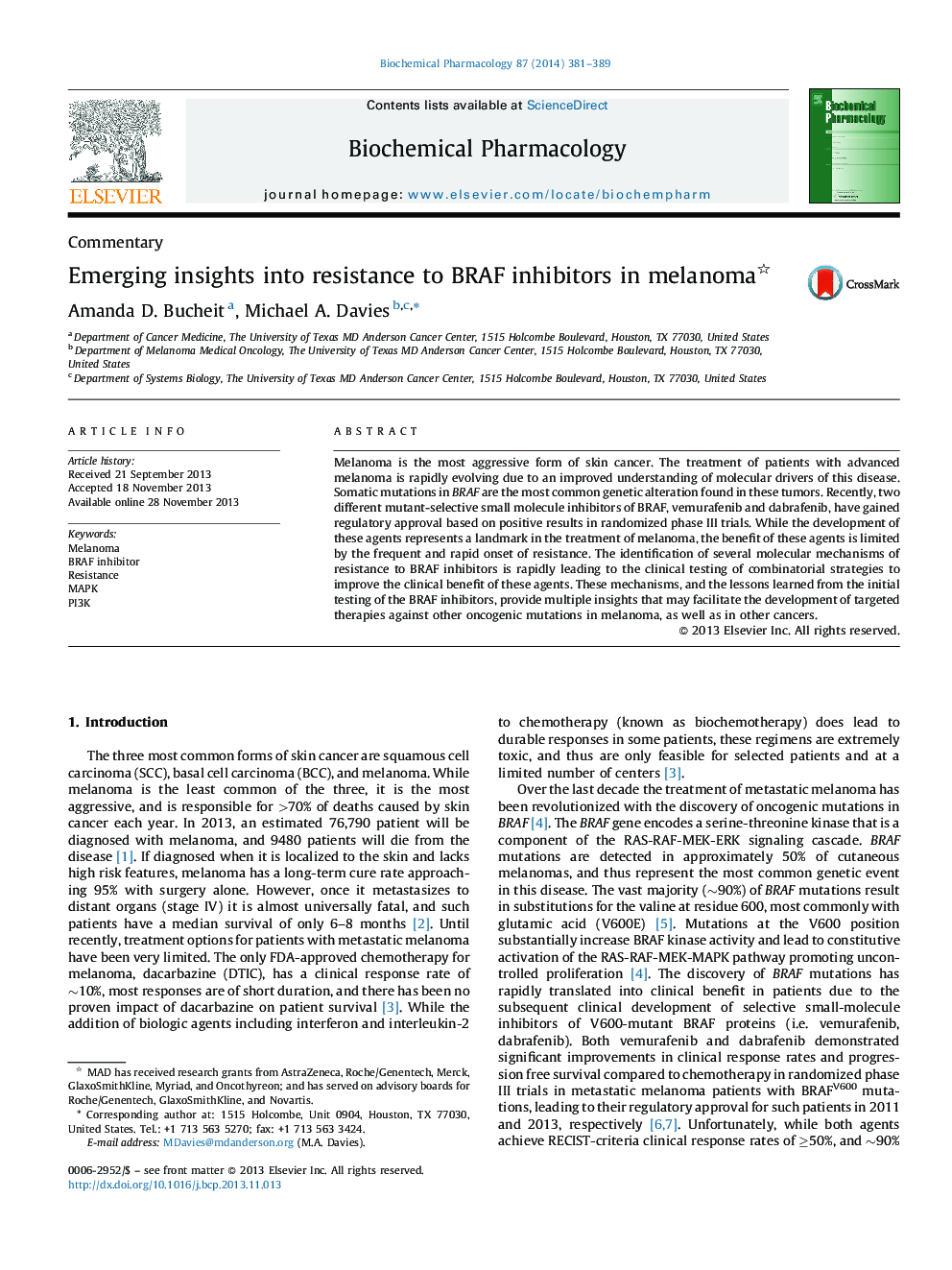| Article ID | Journal | Published Year | Pages | File Type |
|---|---|---|---|---|
| 2512459 | Biochemical Pharmacology | 2014 | 9 Pages |
Melanoma is the most aggressive form of skin cancer. The treatment of patients with advanced melanoma is rapidly evolving due to an improved understanding of molecular drivers of this disease. Somatic mutations in BRAF are the most common genetic alteration found in these tumors. Recently, two different mutant-selective small molecule inhibitors of BRAF, vemurafenib and dabrafenib, have gained regulatory approval based on positive results in randomized phase III trials. While the development of these agents represents a landmark in the treatment of melanoma, the benefit of these agents is limited by the frequent and rapid onset of resistance. The identification of several molecular mechanisms of resistance to BRAF inhibitors is rapidly leading to the clinical testing of combinatorial strategies to improve the clinical benefit of these agents. These mechanisms, and the lessons learned from the initial testing of the BRAF inhibitors, provide multiple insights that may facilitate the development of targeted therapies against other oncogenic mutations in melanoma, as well as in other cancers.
Graphical abstractIdentification of the multiple mechanisms of resistance to mutant-selective BRAF inhibitors is leading to an improved understanding of the molecular pathogenesis of melanoma, and to rational combinatorial strategies.Figure optionsDownload full-size imageDownload as PowerPoint slide
